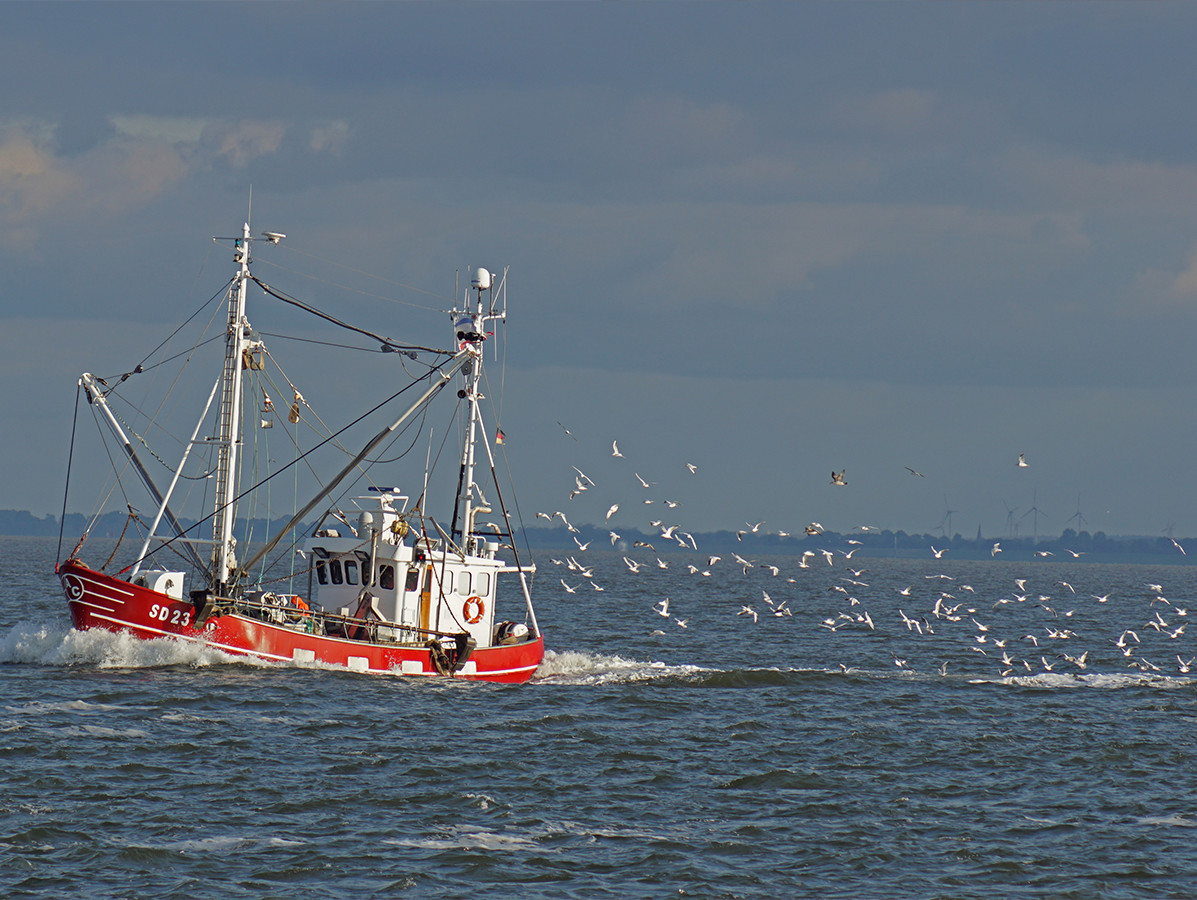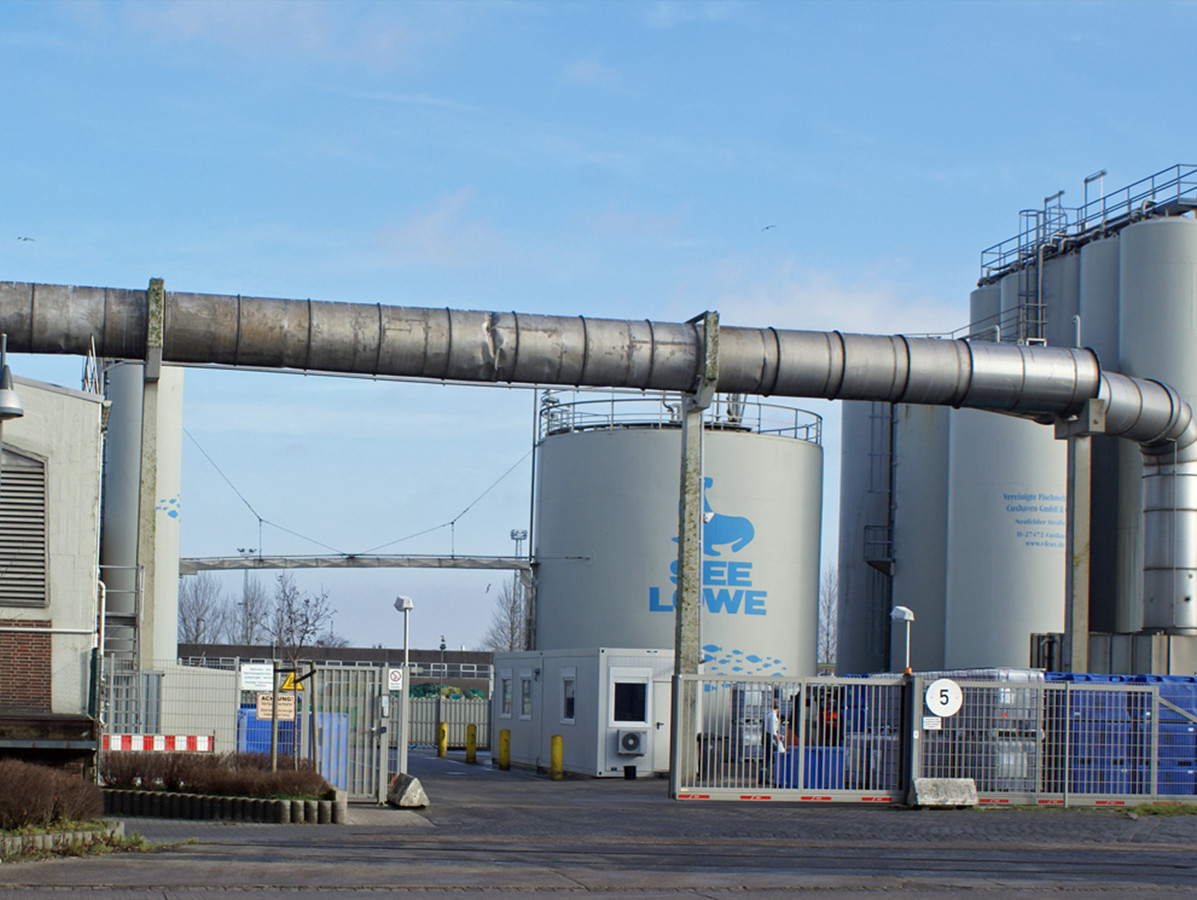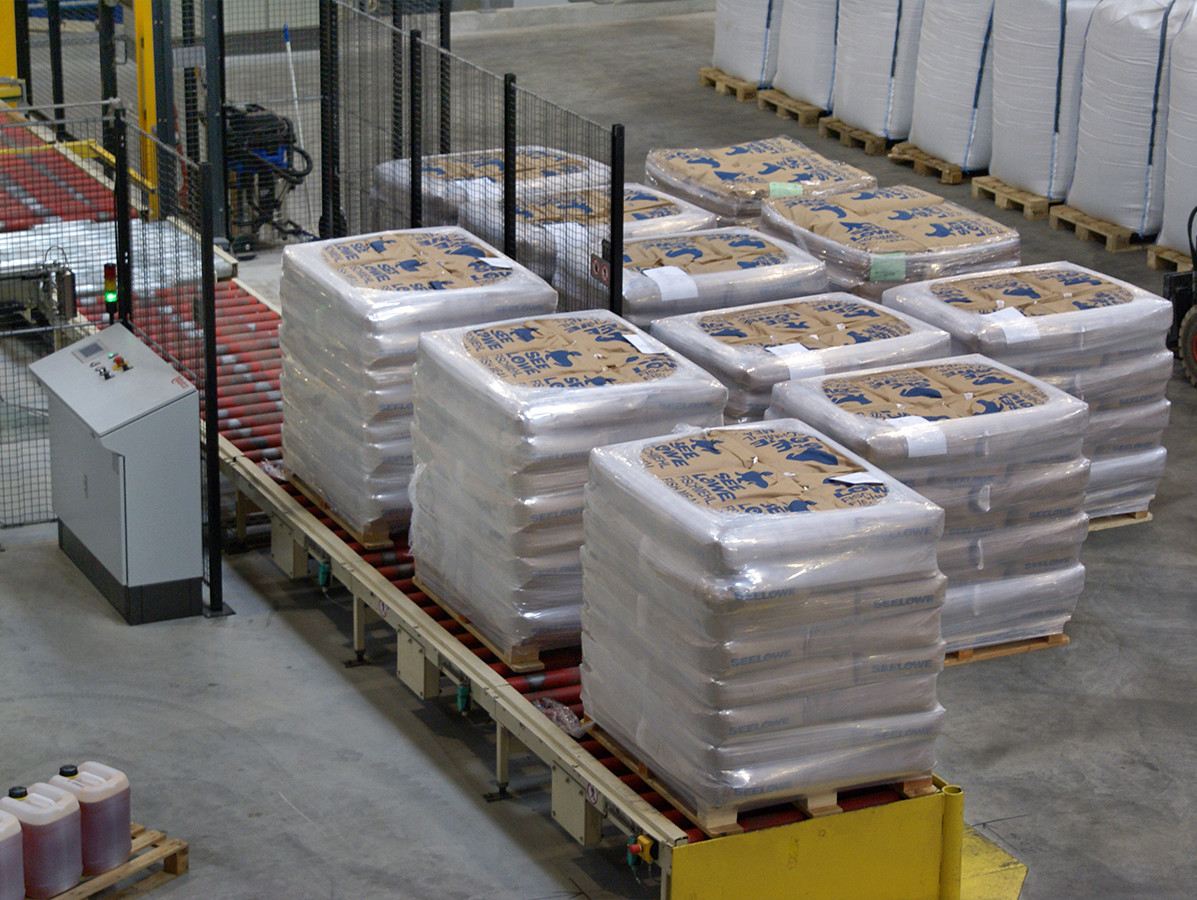
The German Lipromar GmbH is an innovative initiative started in 2010. At this plant, the company extracts fish oil and protein for human consumption from fish heads, bones and trimmings. The product quality is high, claims biologist and R&D manager Dr. Andreas Wohltmann.
Bioceval collects fish waste - more accurately, the by-products of fish - from all over Europe, including the Netherlands, and processes them in Cuxhaven. "For over a hundred years," says R&D manager Andreas Wohltmann. "When the fishery shrank, many fishmeal factories also disappeared. Bioceval still exists, because we specialized early on in quality flours from different fish species. Which is interesting for the animal feed industry. We want to create a circular fish industry as sustainable as possible. So we work with MSC and ASC certified producers."
Many by-products are of such good quality that they prove suitable for human consumption. This led to the start of subsidiary Lipromar in 2010. A challenge, Andreas enthuses. "Mind you, Bioceval and Lipromar are strictly separated from each other! The Dutch transport company Visser transports the food-quality products here in a refrigerated manner. Even before the salmon fillets hit the shelves, we already have the heads. From those heads we produce salmon protein and salmon oil."

Oil and protein are extracted from heads, bones and trimmings. "We purchase those," says Andreas. "Fifty years ago we were given money, now companies are happily aware that these are high-quality products. In China they like to eat these salmon heads."
Upon arrival in Cuxhaven, everything is weighed and tested. What is unsuitable for Lipromar goes to the fishmeal factory. The approved material goes into cold storage for at most 24 hours or is processed immediately.
Andreas explains that the fish parts are ground into a mash, which is heated to 90°C. "This mass goes to a decanter centrifuge (a vertical centrifuge, ed.) where the raw oil is filtered out of the mass and separated from the mash. A separator is used to filter the last water and protein residues from the oil. The pure oil goes into airtight tanks and from there into bottles. Without any additives, it has a shelf life of two years. It is loaded with omega-3 fatty acids EPA and DHA. Healthier than many omega-3 fish capsules with often refined oil and additives."
Water-soluble proteins are extracted from the remaining oil-free mash. "We have only been mastering that process properly since 2015," Andreas argues. "With vacuum and heat techniques, we extract over 70 percent moisture from the mash. Then we dry the substance further on a drum dryer with two rollers. The dry substance is cooled and ground in a powder mill, and is suitable as an emulsifier or texture enhancer. For example, we used it to make a mortadella-like salmon sausage. The protein provides an excellent structure. From the material that is remaining after that, we dry a second protein product that can serve as a flavoring."

There is a market for the proteins, Andreas knows. But if you want to grow, it requires active consumer outreach. "Fish sausages are eaten in Scandinavian countries. Here, it's still something special. Our protein competes with texture enhancers such as carob flour. An advantage is that more and more people want to eat 'pure', so in a fish dish they prefer to see only fish protein."
The oil is sold in beautiful bottles and is actually a pioneer product in Central Europe. "In Asian cuisine, fish oil plays a big role. We want to introduce it 'into kitchens' here as well! Because of the pandemic, consumers can no longer learn about the product and its possibilities at trade fairs; that makes acceptance more difficult. Of course, promotions are going on everywhere that we should eat more fish because of the healthy fish oil. But many people mainly like to eat Alaska pollock or cod - with a fish oil content of only 3 percent. You need to eat at least a kilo of that every week to get enough omega 3 from fish oil. The same goes for shrimp. Freshwater fish even contains as little omega 3 fish oil as pork."
"On a scientific level, everything has been achieved as we imagined in 2010," says Andreas. "We have done a lot of research, together with universities and other institutes. Compared to our other plants, Lipromar is small in terms of turnover at 8,000 tons per year. But when you see that we started with nothing, I am satisfied with the growth and developments. Lipromar processes 100% of the raw material into products and is therefore circular. We are optimistic. I expect we will reach our economic targets soon."
Bioceval and Lipromar belong to Saria-Group, which is part of the Rethmann Gruppe in Germany. Saria manufactures high-quality basic products for a wide range of industries. These range from food for humans and animals to products for agriculture and aquaculture and for the pharmaceutical industry and industrial applications.
Source: Vakblad Voedingsindustrie 2021